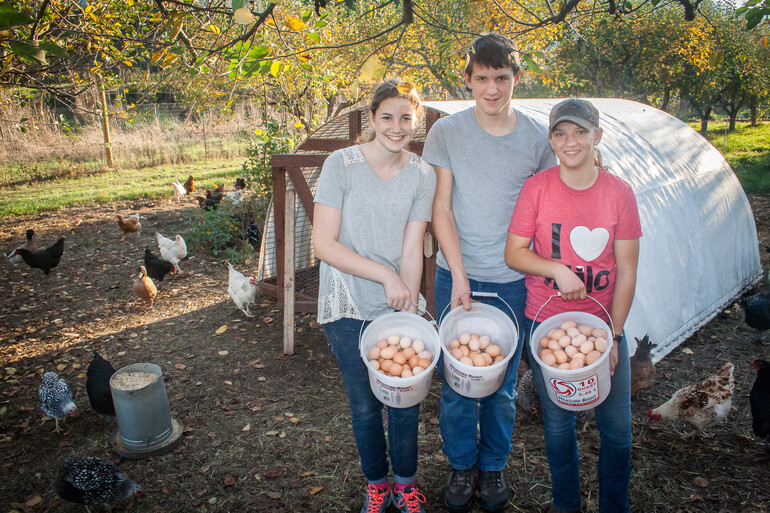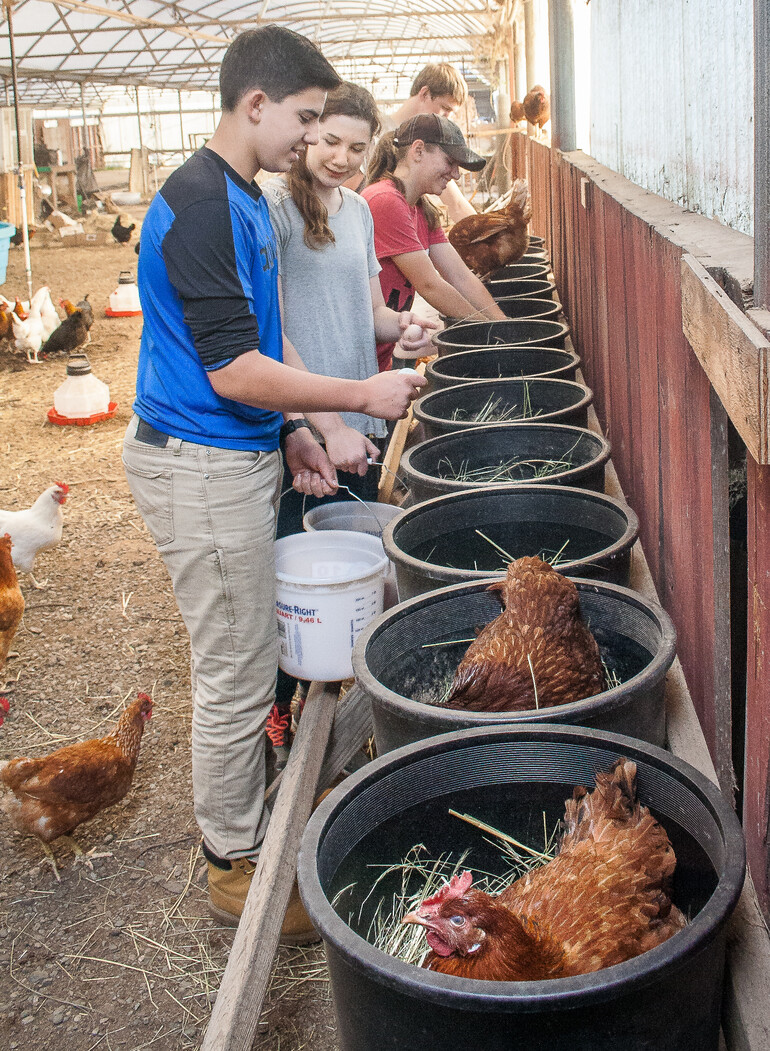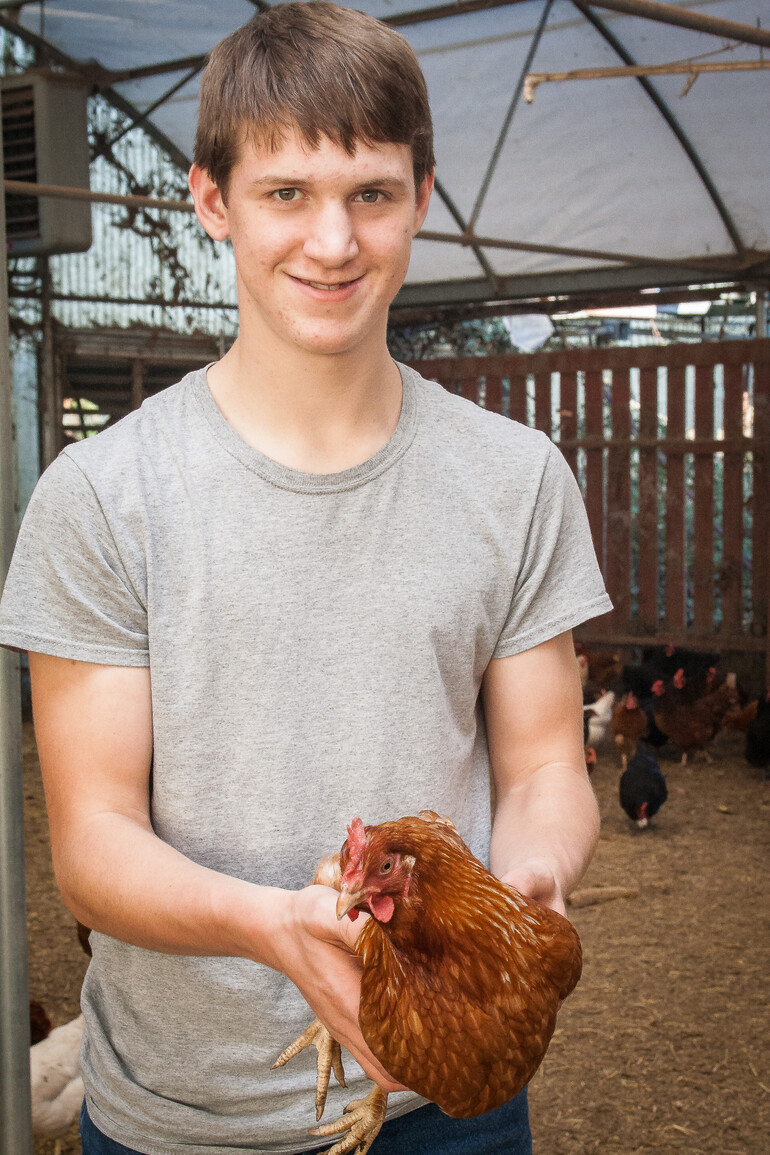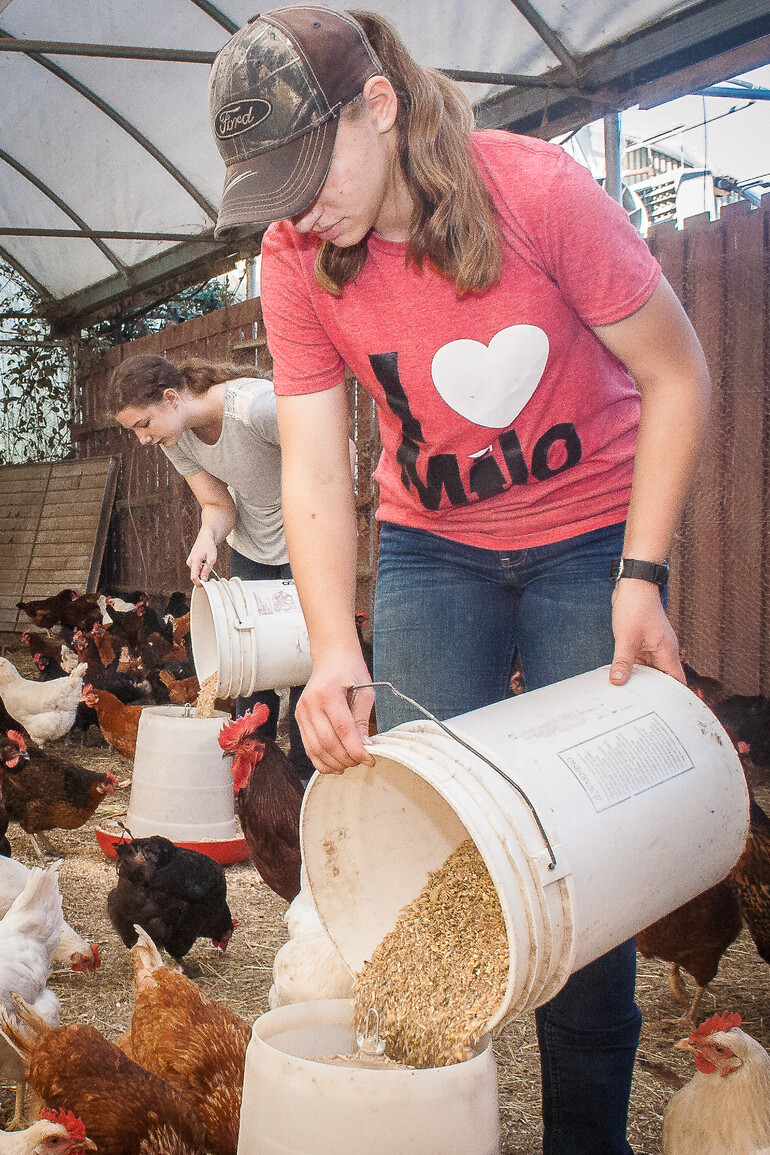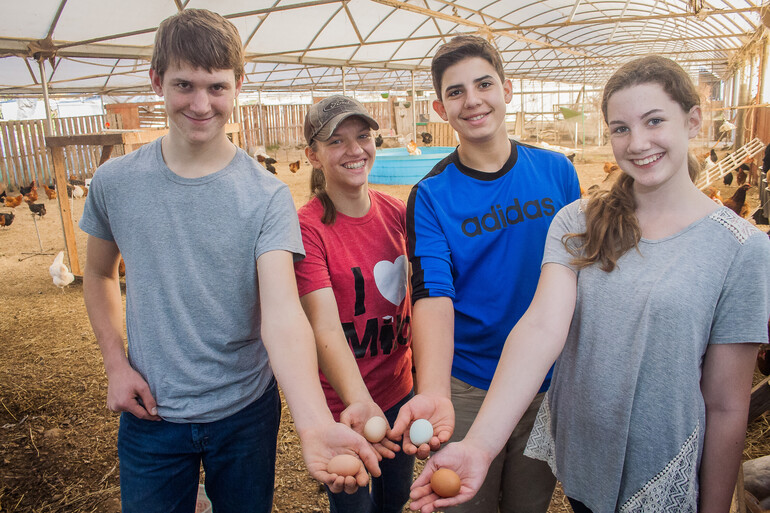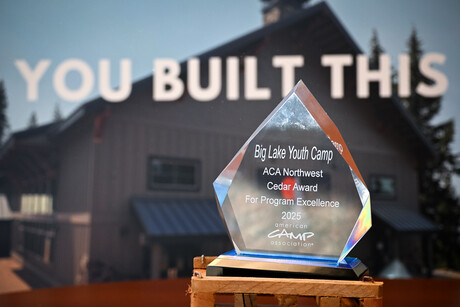A generous friend of Milo Adventist Academy in Days Creek, Ore., donated approximately 350 chicks to Milo’s agriculture program. According to Jeff Birth, Milo's agriculture director, in addition to providing eggs for the cafeteria, the now-grown chickens provide assistance with pest management in the gardens and accelerate the compost operation.
Milo’s all-organic and non-GMO agriculture program, now in its third year, benefits from the 50 free-range chickens that live in the orchard, eating insects that could damage the fruit and providing fertilizer for the trees. The mobile chicken coop is surrounded by solar-powered electric mesh fence to protect the poultry from predators. Soon the other 300 cage-free birds currently housed in the old greenhouses will also have a mobile coop and will rotate through the pastures and compost piles. They benefit from the food scraps, bacteria and fungi in the compost and then forage for pest insects and weeds which reduces the feed to be purchased, and at the same time they enrich the soil with their natural fertilizer.
It was a new experience for agriculture student workers to interact with the chickens. Some loved it, and others were a little intimidated. Birth reports, “Kids are enthralled with the process. They never knew that eggs come in different sizes or that sometimes they are deformed, like an egg with two yolks. They’re learning to sort for size, clean and prepare the eggs and work around feisty hens.”
Junior Kat Brus has had a positive experience working with the chickens. “It’s not a big deal,” she says. “You just roll the hen to the side and take the egg. We move them around in the pen to fertilize different areas of the orchard.”
Freshman Dylan George says, “You have to reach under the hen, and they peck at your hands.”
His classmate KarrLee Miller adds, “They all have different personalities. Some are kind of mean, and some are really friendly.”
The students collect 200 or more eggs per day, which surpasses the needs of the cafeteria. Birth says, “We’ve exchanged the cheapest factory eggs for wholesome cage-free, soon-to-be-free-range eggs. Our goal is to sell to the community at our produce stand within the next six months.”
Milo’s executive chef, Janrry Telah, loves getting eggs from the agriculture program. “I don’t have to buy eggs anymore, and you can’t beat fresh eggs. They taste a lot better.”
For more information about Milo’s agriculture program, email Jeff Birth.




